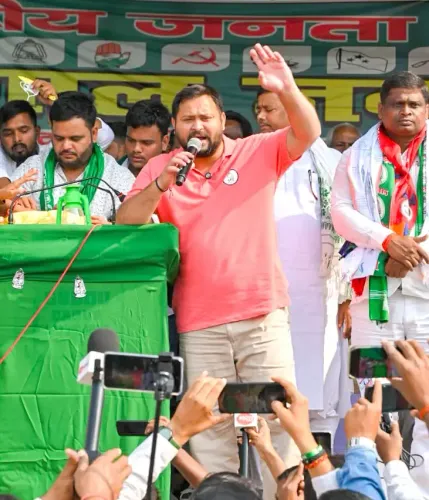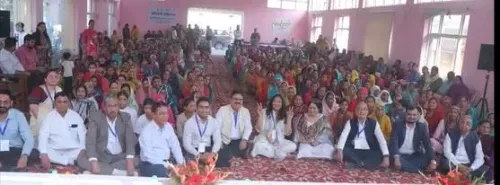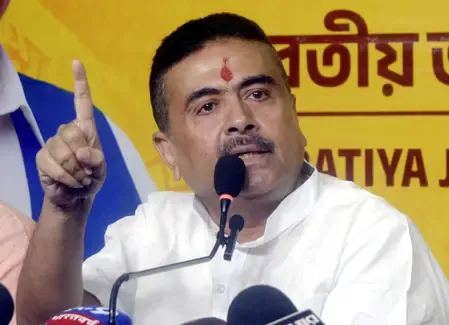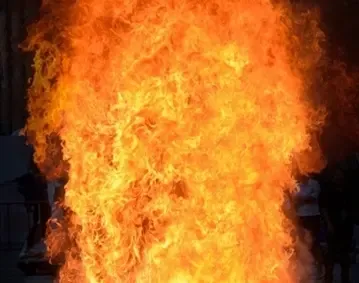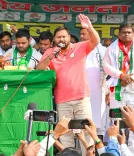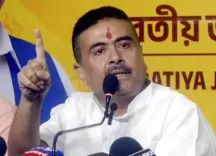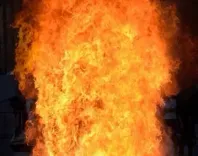What Happened After Protests? Kerala Lawmakers Visit Arrested Nuns in Jail
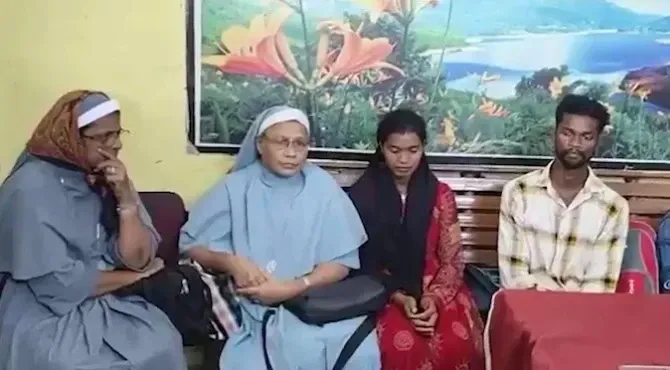
Synopsis
Key Takeaways
- Five lawmakers met the arrested nuns.
- Initial permission to visit was denied.
- Former CM's intervention led to their visit.
- Claims of trafficking have been debunked.
- Church protests are planned in response.
Chhattisgarh/Thiruvananthapuram, July 29 (NationPress) A group of five lawmakers representing the All India Congress Committee (AICC) visited two nuns who are currently imprisoned in a Chhattisgarh jail.
Initially, the delegation was denied entry, while Kerala BJP General Secretary Anoop Antony was granted access without issue.
It was only after the intervention of former Chhattisgarh Chief Minister and seasoned Congress leader Bhupesh Baghel that the AICC delegation was permitted to meet the nuns.
On the same day, a local court in Chhattisgarh dismissed the bail applications of the two nuns, prompting the church to seek relief from a Sessions Court the following day.
The nuns, Preeti Mary and Vandana Francis, affiliated with the Assisi Sisters of Mary Immaculate—a congregation under the Syro-Malabar Church in Alappuzha district—were serving at a hospital in Agra.
On August 26, the two nuns and a man named Sukhman Mandavi were escorting three women from Narayanpur district to Agra, where they had been offered positions as kitchen helpers at a convent.
While waiting at the railway station in Chhattisgarh, they were confronted by Bajrang Dal activists, and the police were also summoned.
Subsequently, the nuns and the man were detained and presented in court, which ordered them into judicial custody.
The delegation included Lok Sabha members Benny Behanan (Congress), N.K. Premachandran (Revolutionary Socialist Party), Francis George (Kerala Congress), Saptagiri S. Ulaka (Congress), and Roji M. John (Congress).
The brother of Sister Preeti was also part of the delegation.
After the meeting, RSP legislator Premachandran stated that the nuns were clearly shaken by their ordeal and remained in a state of distress.
"It is evident that the two sisters had no ill intent. They were living in different places and met at the railway station in Chhattisgarh, where the aggressive Bajrang Dal activists began to harass them," he noted.
"The Bajrang Dal activists searched the sisters' and the women's bags, recovering ₹2,000 from one of the women. They were accusing the nuns of providing her with the money," Premachandran explained.
Congress member Behanan asserted that all the claims made during the nuns' arrest have proven to be false.
"Initially, it was stated that the three young women were minors, which was debunked as they had their identity cards and Aadhar cards. Furthermore, allegations of them being forcibly taken away were refuted by their parents," he added.
Biju, brother of Sister Preeti, mentioned that he traveled all the way from Kerala to see her and inform their elderly parents about her condition.
"It was an emotional reunion, and we both shed tears. Now, we feel somewhat relieved as we are pursuing bail," Biju remarked.
The AICC delegation was disappointed that, despite their status as lawmakers, they did not receive the respect they deserved while a BJP leader from Kerala, Anoop Antony, was granted access.
"We will compile a report for the AICC regarding the distressing situation of the two nuns, who have done nothing wrong. We will raise this issue again in Parliament on Wednesday," Behanan confirmed.
Earlier on Tuesday, as a way to mitigate backlash, Kerala BJP President Rajeev Chandrasekhar clarified the situation by stating there was a miscommunication regarding the arrest.
"It has become clear that neither trafficking nor religious conversion occurred. There was a misunderstanding in this incident. We, the BJP, will support the nuns until they receive justice. If necessary, I will travel to Chhattisgarh myself. I have been in contact with the Home Minister there," Chandrasekhar told the media in Delhi.
On Wednesday, various churches in Kerala will be organizing protests to highlight the violation of the nuns' constitutional rights and their imprisonment.

